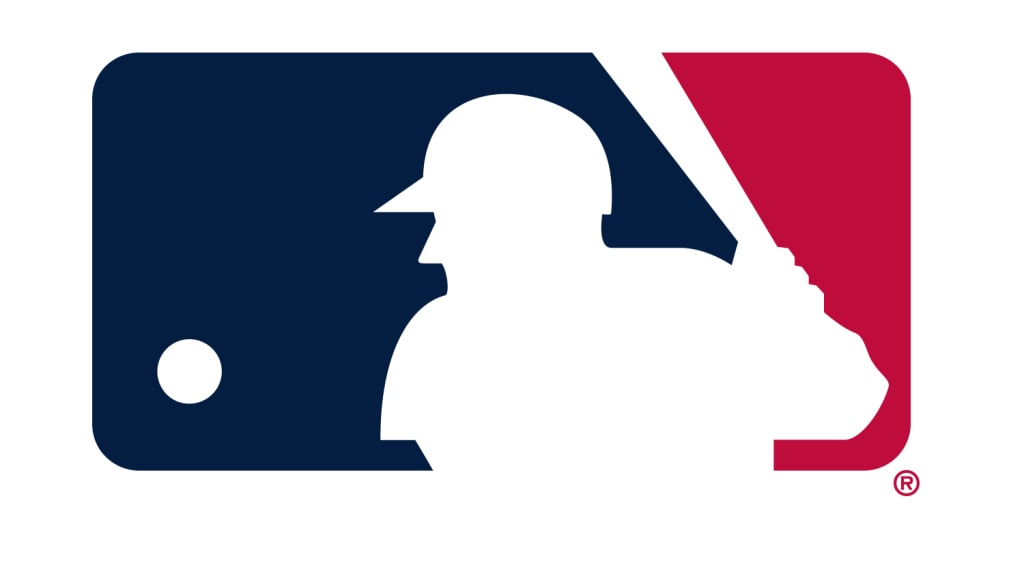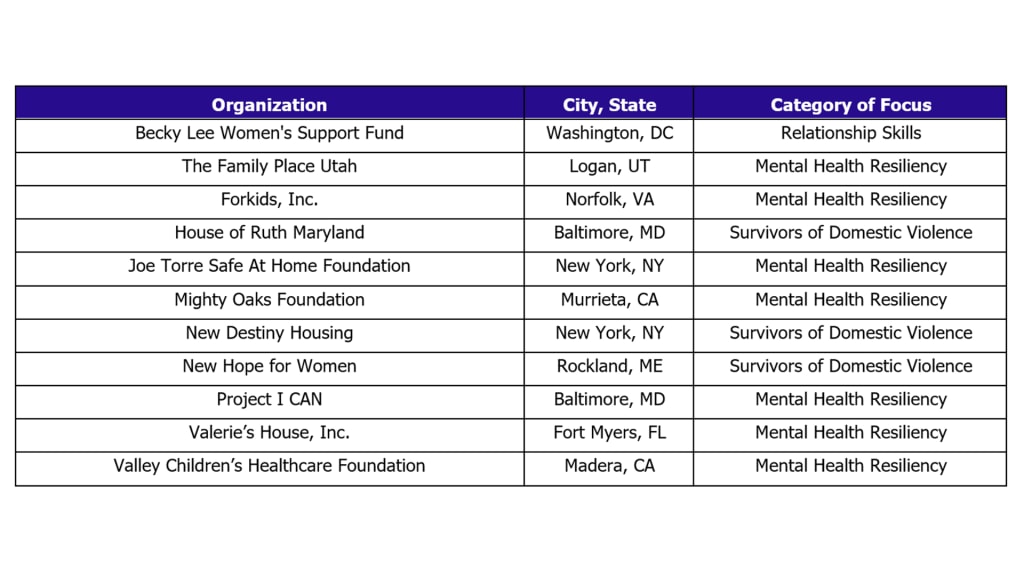
Major League Baseball (MLB) and the Major League Baseball Players Association (MLBPA) on Friday announced the fifth round of recipients for the joint “Healthy Relationships Community Grant” program. The current distribution of more than $500,000 is going to 11 nonprofit organizations, marking nearly $2.5 million donated to more than 50 organizations so far in this program. The focus areas for the organizations receiving funding include support for survivors of domestic violence, mental health resiliency, and developing positive relationship skills in youth as a preventive measure to breaking the cycle of violence.
Organizations were encouraged to apply for funding to cover general operating expenses, allowing them to respond to their greatest needs, or program support. The recipients are as follows:

This overall initiative is a $3 million commitment to provide funding in 2020 and 2021 to organizations that support healthy relationships through programs designed to strengthen and provide critical services to survivors of domestic violence, improve mental health resiliency among vulnerable populations and build and improve relationship skills of the next generation.
U.S.-based nonprofit and global non-governmental organizations (NGOs) can still apply for localized support at MLB.com/HealthyRelationships and MLBPLAYERS.com/HealthyRelationships throughout the year, with proposals reviewed on a quarterly grant cycle. Nonprofits and NGOs may apply for grants of up to $50,000 for general operating or programmatic funding for one or more of the following categories: Healthy Relationship Practices/Education, Support for Survivors of Domestic Violence, and/or Mental Health Resiliency. Grant applications will be evaluated quarterly based on assessment of the population served, organization strength, impact, partnerships, sustainability of the programs, and more. Additionally, MLB Club charities and Major League Players have been encouraged to apply directly for up to $25,000 as part of a gift matching component of the initiative, with grant evaluations based on documentation of direct funding and commitment to the issue.
This initiative is intended as a prevention strategy to empower the next generation to understand the components of a healthy relationship. Organizational efforts supported by grant funding may include public education, with a preference for youth populations, on the difference between healthy and unhealthy relationships as it relates to interpersonal violence (e.g., intimate partner, family or teen dating). Examples of education efforts include creating, producing & distributing public service announcements with relevant content and call to action as well as conferences or events focusing on awareness. Funding can also go toward supporting existing, or introducing new, programming on how to break the cycle of violence.
Strengthening and providing services to survivors of domestic violence is of critical importance to this grant initiative. Efforts may include (a) capacity building in support of the organizational mission of the nonprofit or NGO; (b) mental health support; (c) professional and life skills workshops as well as Eleven Organizations Named Recipients of the Latest Round of the "Healthy Relationships Community Grant" Programadditional education and materials to improve employee readiness and workplace development; or (d) advocacy efforts to reduce domestic violence, dating violence, sexual assault, and stalking.
Efforts toward building and improving mental health resiliency for vulnerable populations may include providing greater access to (a) quality mental health services and wellness programs; (b) preventative programs designed to reduce suicide, suicidal ideations and self-harm; (c) training programs for mental health professionals; or (d) school or community-based interventions.
The joint donation for the “Healthy Relationships Community Grant” represents an ongoing commitment by MLB and the MLBPA to provide support to causes that assist vulnerable populations, which has historically included financial assistance toward disaster relief and recovery as well as human trafficking prevention.